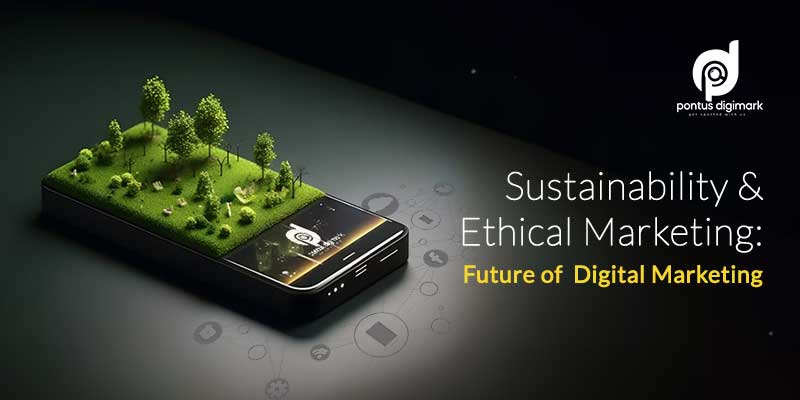Businesses are becoming increasingly mindful of their social and environmental impact, spurred by global challenges like climate change and social injustices. As we approach 2024, a profound shift is underway, reshaping how brands engage with consumers. Sustainability and ethical marketing are no longer mere buzzwords but critical pillars upon which the future of digital marketing rests.
Today’s consumers are more conscious about the impact of their choices on the world. They not only consider the quality and benefits of a product or service but also place a significant emphasis on the values and principles of the brand behind it. As a result, they are increasingly interested in brands that prioritize environmental and social responsibility, making it a crucial aspect that any brand should consider while promoting their offerings.
This blog explores the rising trend of sustainability and ethical marketing and explains how businesses are integrating these principles into their digital marketing strategies to create a positive impact while boosting their brand image and revenue.
1.Sustainable Business Practices:
Sustainability isn’t just about green initiatives; it’s a holistic approach that considers environmental, social, and economic factors. Forward-thinking businesses are embracing sustainable practices in their supply chains, energy consumption, and waste management. Digital marketing is instrumental in conveying these efforts to consumers. Through compelling storytelling via social media, blogs, and videos, companies can transparently showcase their eco-friendly initiatives, fostering trust and loyalty among environmentally conscious consumers.
2.Ethical Sourcing and Fair Trade:
Ethical marketing extends to sourcing raw materials responsibly and ensuring fair labor practices. By highlighting fair trade certifications and ethical sourcing methods online, businesses can educate consumers about their commitment to supporting ethical and equitable production processes. This transparency not only attracts socially aware customers but also encourages other businesses to follow suit, thereby fostering a global culture of ethical commerce.
3.Transparency and Consumer Trust:
Consumers today demand transparency from the brands they support. Digital marketing provides the ideal platform for businesses to communicate openly about their sustainability efforts, including carbon footprint reduction, waste reduction initiatives, and ethical labor practices. Authenticity in these communications builds consumer trust, leading to stronger brand-consumer relationships. Genuine efforts resonate with audiences and create a sense of shared responsibility towards a sustainable future.
For the best digital marketing and AI automation services contact Pontus Digimark.
4.Green Innovation and Product Development:
Innovation plays a pivotal role in sustainable and ethical marketing. Businesses are investing in research and development to create eco-friendly products and services. Digital platforms allow companies to showcase these innovations, educating consumers about the benefits of environmentally conscious choices. Interactive websites, webinars, and social media campaigns can elucidate the positive impact of these green alternatives, encouraging consumers to make informed decisions that align with their values.
5.Collaborative Sustainability Initiatives:
Digital marketing provides a global stage for collaborative sustainability initiatives. Businesses are joining forces with environmental organizations, NGOs, and other companies to tackle pressing issues such as climate change and plastic pollution. Through digital campaigns, businesses can rally support, raise awareness, and drive collective action. Social media challenges, online petitions, and interactive webinars engage audiences, creating a sense of community and shared purpose.
As we approach 2024, the synergy between sustainability, ethical marketing, and digital platforms is reshaping the marketing landscape. Businesses embracing these principles are not only contributing to a greener, fairer world but are also fostering customer loyalty, trust, and positive brand perception. The digital realm serves as the catalyst for this transformative change, allowing businesses to amplify their commitment to sustainability and ethical practices, inspiring a global movement towards a more conscientious and sustainable future.







